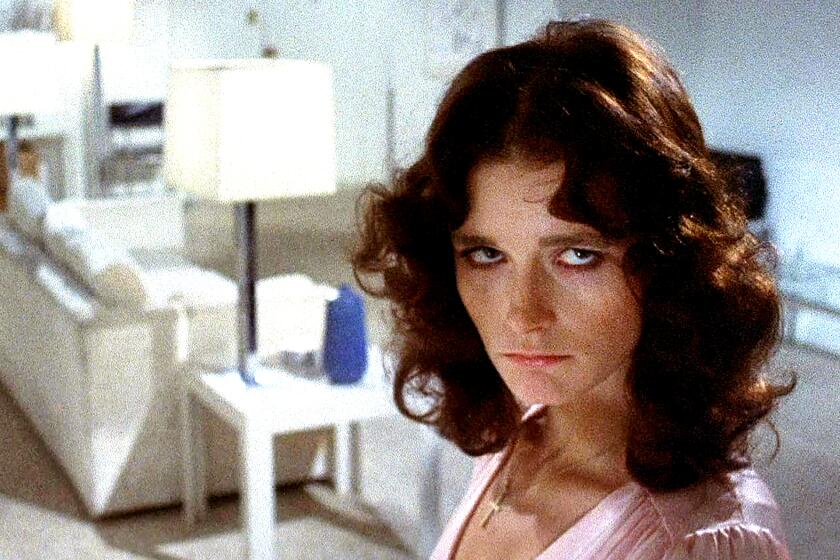Don Juan and Big Little Man
Everybody knows that Thomas Berger wrote “Little Big Man,” a comic epic of the Old West that was made into a hit movie starring Dustin Hoffman. But not everybody knows that Berger has been turning out satisfying work for decades. Besides four long novels about the life of Carlo Reinhart, a post-World War II Everyman, he has written comedies such as “The Feud,” “Neighbors” and “Meeting Evil,” in which ordinary Americans are sucked into the whirl of events like patio furniture into a tornado.
“Best Friends” is another of these. The title characters are Sam Grandy and Roy Courtright, who have been close since boyhood, though they couldn’t be more different. Roy is fit, Sam is fat. Roy is a womanizing bachelor, Sam a devoted husband. Roy, who inherited wealth and doesn’t have to work, is passionately involved in a vintage-car dealership. Sam, who squandered a lesser inheritance and has no vocation, only a fascination with various consumer gadgets, lets his wife, Kristin, pay the bills.
We would expect Berger to tell the story through the viewpoints of both characters, but, instead, he focuses on Roy and leaves Sam offstage for most of the action. It’s a defensible choice; Roy has the more interesting life. But it has disadvantages too -- when we reach the end, we wish we knew more about Sam’s thoughts and feelings.
In the very first chapter, Sam has a heart attack -- a predictable result of his couch-potato lifestyle. He asks Roy to do him a favor -- to sneak into his house and remove a costly espresso machine before Kristin notices. Sam claims that he’s facing bankruptcy, despite receiving money from Roy for years. Now he needs $50,000.
Entering Sam’s house, Roy is mistaken for a burglar. Days later, he has a more serious run-in with the police. The husband of his current mistress confronts him, and Roy, who has studied karate, knocks the man down in her presence. Humiliated, the husband follows her home and kills her, then commits suicide. Up until now, Roy’s aim has been simply to exploit “the good fortune that had made it possible for him as an adult to practice an enjoyable, relatively risk-free, and intentionally harmless way of life.” By his own lights, he isn’t a bad guy. One of Berger’s triumphs in this novel is that he can persuade us that Roy is genuinely charming to women. But the shock of the murder-suicide compels Roy to reassess everything, including his relationship with Kristin.
As far as Roy is concerned, there hasn’t been a relationship. Out of loyalty to Sam, he has hardly looked at her, and he thinks Kristin disapproves of his tomcatting around. However, it turns out that Kristin has long had the hots for Roy, and with Sam in a hospital bed and the world turning upside down, the two become lovers.
Roy finds himself, to justify the first bona fide marriage-grade romance of his life, disparaging Sam as a loser. He begins to wonder what friendship really is. “He and Sam had been stuck with each other for more than half their lives. Whether they had actually ever liked each other was probably irrelevant.” Roy and Kristin’s affair is described with Berger’s usual poise, in a style at once elegant and casual, with his unique mix of sweetness and cynicism. The minor characters are sharply drawn. Only the ending goes awry. There’s one death too many, and an outburst of melodrama that doesn’t flow logically from what went before but surprises us in the wrong way. It’s rare for a writer of Berger’s experience to have to resort to a patch-up job, but that seems to be what happened here.
More to Read
Sign up for our Book Club newsletter
Get the latest news, events and more from the Los Angeles Times Book Club, and help us get L.A. reading and talking.
You may occasionally receive promotional content from the Los Angeles Times.








